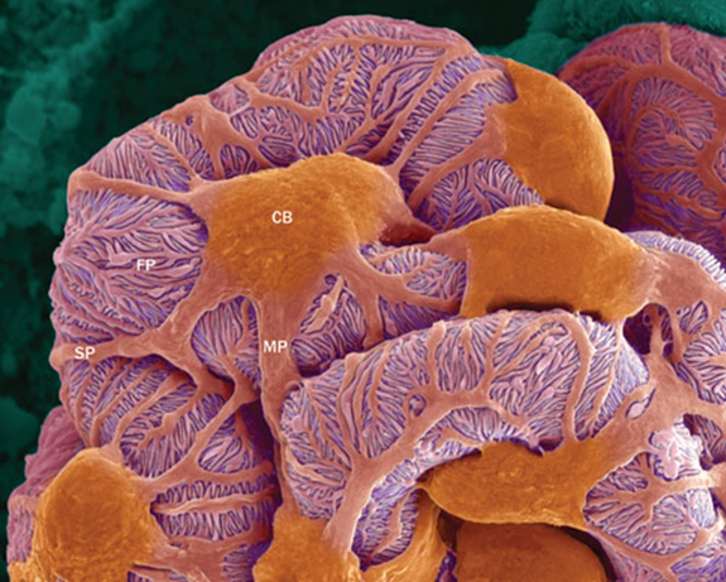Aldosterone, potassium and nephron
Kidney is the primary route in which the body eliminates wastes and maintains a healthy balance of water, salts and minerals in blood. These functions are performed by filtering units called nephrons. Aldosterone has a strong influence on kidneys. Scientists know that this hormone controls the amount of salt (sodium) reabsorbed by the tubules of the nephrons, but some of the underlying mechanisms remain unclear.
In a recent study published in the FASEB Journal, researchers from Prof. Eric Feraille laboratory studied the primary cilia of epithelial cells located in nephron tubules. They discovered that an elongation of these cilia might participate in kidney response to aldosterone and consecutive sodium reabsorption.
Sometimes things go wrong and kidneys pass too much protein in urine, a disorder called nephrotic syndrome. In another recent paper, researchers from the same laboratory studied the role of potassium in the context of this disease. They discovered that potassium balance determines the localization of sodium reabsorption in the nephrons and that aldosterone might play a permissive role in these localization changes.

Electronic microscopy of a glomerulus with podocytes (in orange) surrounding arterioles (in purple) ©unige
10 Feb 2020